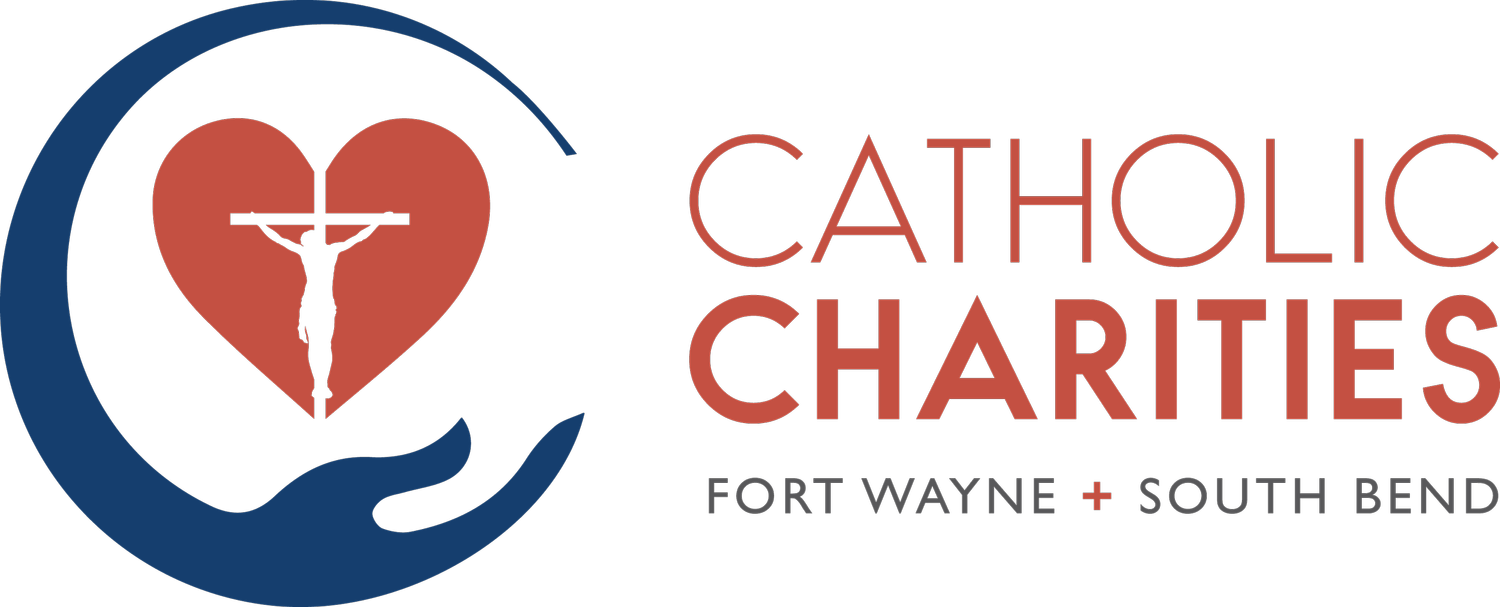Where Hope Thrives
THRIVE LIFE SKILLS PILOT CLASS BOASTS HUGE SUCCESS
Catholic Charities’ brand new Thrive Life Skills program is built on a culmination of best practices that have been proven to correlate with higher rates of self-sufficiency and overall wellness for participants. Developed as part of our strategic plan, the primary goal of the program is to educate and equip students with the necessary skills to move beyond their immediate needs and build a foundation for long-term stability. The class curriculum focuses on self-sufficiency across seven domains of life: emotional, financial, environmental, social, intellectual, physical, and spiritual.
Research indicates that group learning offers a social impact that one-on-one case management does not, and this program offers both. The Thrive model allows one case manager to assist 10-20 people simultaneously, effectively meeting the high demand for services.
Program Highlights
Target Audience:
The program focuses on individuals who are vulnerable but not in crisis, as they are better suited to take in and apply the information provided.
Curriculum Structure:
The curriculum is being modified to cover 3-5 topics per class, using staff facilitators to ensure comprehensive and structured learning.
Participant Engagement:
Participants showed a high level of engagement, with most attending every class – and those who did miss a class met with the facilitator one-on-one to make up the lesson.
Motivations and Outcomes:
While financial stability was a key motivator for joining the class, participants soon became excited about learning other social and emotional skills that can often affect financial decisions. These skills played a significant role in shaping their mindsets and values.
The pilot program highlighted a number of positive surprises. After the first class, the group started to become highly engaged in the content and showed a strong desire to learn more skills. Staff assumed there would be a drop in attendance as the 10-week program continued, but there was only a slight decline. Staff facilitators held a post-class one-month check-in and two-month check-in, which the majority participated in. The group’s enthusiasm extended beyond the classroom, as they took it upon themselves to continue meeting and even organized a potluck.
Classes are expanding to all three regional offices. The program will leverage partnerships with other nonprofits to recruit suitable candidates, as well as accept vetted internal referrals.
Participant Testimonials:




